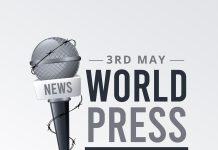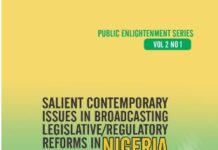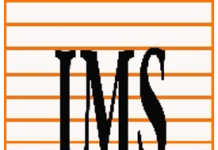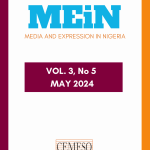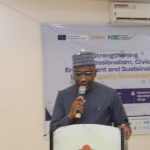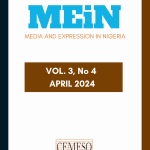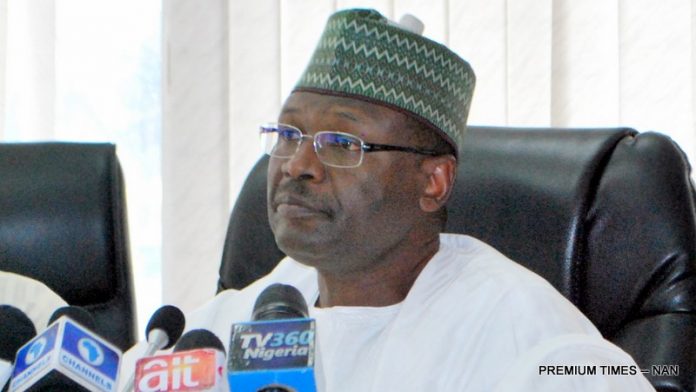
Somehow I agree with Professor Mahmood Yakubu’s apt characterisation of Nigerian democracy. Largely, he says, it is a democracy without democrats. As chairman of the Independent National Electoral Commission INEC, he should know what he is talking about, though not many people would agree with him especially in view of the current elections some of which, for some strange reasons, have not been conclusively concluded in at least five states.
Deductions from his analysis is that INEC under his watch would have done far better, instead of far worse, if politicians, the principal participants in the game in which he serves as umpire, have not thrown too many spanners in the work. And what is worse, if many of them have not sought selfishly to redefine this system which is anchored on the untrammeled freedom of the electorate to freely elect persons of their choice into office.
Cynics, and their tribe has flourished and multiplied in recent time, may have reached the conclusion that what this country has chosen, advertently, to practice is democracy at gunpoint. The umpire alluded to this recently when it said some of its officials were forced to declare some winners at gunpoint.
In truth, if voters were forcefully prevented to vote for some candidates of their choice and if some other voters were prevented at gunpoint from coming out to exercise their democratic freedom, that would amount to democracy at gunpoint.
But that is precisely what President Muhammadu Buhari has been preaching against – violence and intimidation, vote buying and all other forms of malpractices that run against the grain of a true democracy. The problem, as evidenced from the current elections, is how unfortunately the politicians and virtually all the participants in the system have uniformly ignored the president’s admonition, thus giving credence to insinuations in some quarters that the president’s body language was not really in consonance with his admonition. Or he lacked the political will to enforce his wish which was for a free and fair election.
Such people will be right considering that there is a lot the government could have done to prevent violence and other malpractices which it has not found the nerve to do up until Kingdom come. After the 2007 presidential election, President Umaru Musa Yar’Adua set up Justice Uwais Committee which turned in a report that has not been implemented till date. After the 2011 post-election crisis, the government of President Goodluck Jonathan setup Sheikh Ahmed Lemu committee, not to bother to add that Senator Ken Nnamani, on the same issue. Nothing has been heard of it. Maybe if implemented, the outcome would have made some positive difference.
It is possible that some people who still prefer to wield the instruments of violence – AK 47 and all that, are still stuck in Africa of the 60s when, according to Ruth First, “power lies in the hands of those who control the means of violence. It lies in the barrel of the gun – fired or silent.” Not anymore. That era is long gone, consigned for good into the garbage of history.
To prevent a resurgence of anti- democratic tendencies, Nigerians must be for ever vigilant and courageous enough to say no to democracy at gunpoint, the type that we witnessed during the 2019 elections that led to inconclusiveness, voter apathy, fear and intimidation.
And, our president, in the true spirit of his current calling – a soldier in the battle for democracy – must lead this war to reconstruct the country and the unwholesome mind set and attitude of the politicians, some who ignorantly believe that being close to him is a license to subvert due process and stand democracy on its head.
In consonance with his “democratic credentials” President Buhari, according to a small but significant report in Trust (Friday March 15), has “dispatched the Foreign Affairs minister, Geoffery Onyeama, to the neighbouring Republic of Benin to intervene in the political crisis there as that country prepares for election on April 28.”
What is generating the pre-election crisis in that country has to do with the series of reforms undertaken recently apparently to sanitise the electoral process. The reforms, among other things, have pruned down the number of parties. Apparently the main opposition party feels that it has been short-changed by the ministry of interior and the National Electoral Commission (CEMA). Naturally, the opposition party has cried out to the Economic Commission of West African States (ECOWAS). President Buhari is the current chairman. According to Foreign Affairs spokesman, Sarah Sanda, “President Buhari remains concerned about the growth of democracy in the sub region.”
Arising from this commitment, and given his influential position in ECOWAS in particular and African continent in general, the president, according to the report, has had numerous engagements with his Benin Republic counterpart, President Patrice Talon. He has pleaded with President Talon to ensure that all politicians and the political parties are given a level playing ground to participate in the democratic process.”
This is not the first time the president would have to intervene and even interfere in the affairs of another African country. President Yahya Jammeh, after 20 years of dictatorial rule in Gambia and during which he impudently mismanaged its economy, was eventually shown the door out in an election but he refused to budge. It took the intervention of ECOWAS, first using the carrot but failing that, then the big stick for the man to leave office paving way for the inauguration of the democratically elected Adam Barrow as president. Threat of body bags was not the promised reward of the ECOWAS’ leaders including the former Liberian president and our own President Buhari when they did what they did to salvage the image of Africa and get rid of one of the continent’s black sheep.
Before Buhari’s time, there was a political disaster and charlatan called Laurent Gbagbo that presided over the affairs of Ivory Coast. He came to office as President highly recommended because of his credible academic background, a Phd in history but jailed in 1971 for “subversive” teaching during the iron rule of Houphouet Boigny. This Cicero, so-called because of his taste for classical languages and strident opposition to dictatorship, spent more time in jail than outside it. But he was not deterred. In 2000, he contested and won in the disputed presidential election. But his ten years in office were tumultuous years that witnessed not any tangible development but economic hardship that culminated in a civil war. His end came in a humiliating manner in 2010 when he lost the election to his opponent Alassane Ouattara. But he was not decent enough to know when the game was up. He thought, like some other African sit-tight leaders, he could defy the remorseless logic of a people’s anger and stay up.
It took Alassane Ouattara’s forces backed by French troops that stormed the presidential compound in April 2011 to humiliate him out of office. President Buhari has enough lessons in his armoury to persuade President Talon of Benin through his emissary that it is a lot better to play the game according the rule than to be adamant and invite mayhem and cataclysm. Though we are somehow guilty of trying to practice democracy at gunpoint, Buhari will still be right to drum the point home to his African listeners that the era of the man on the horseback is gone, and gone for good.


